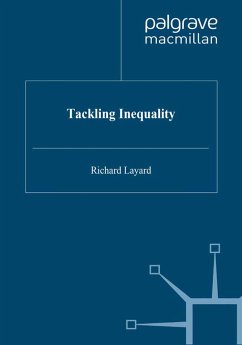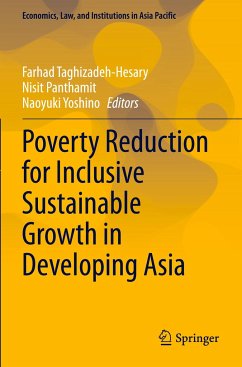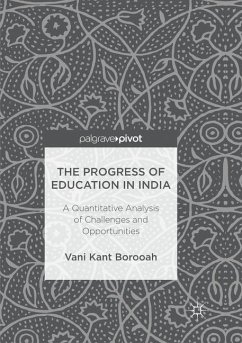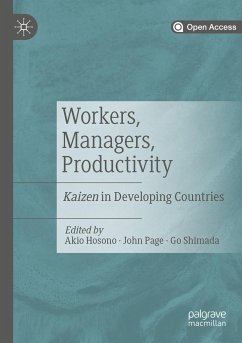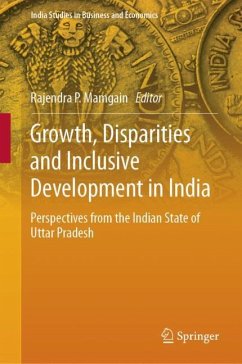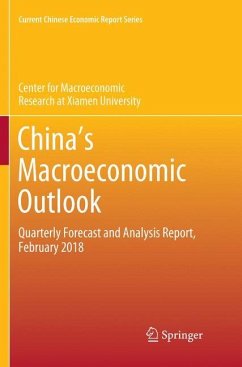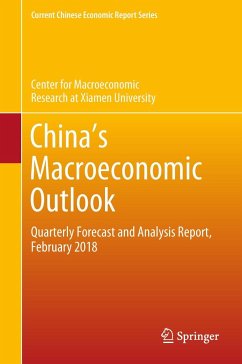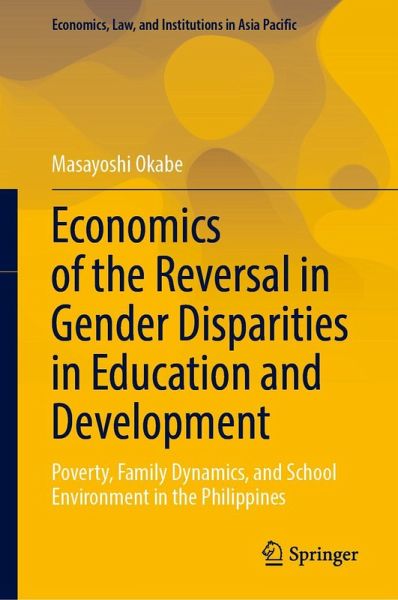
Economics of the Reversal in Gender Disparities in Education and Development
Poverty, Family Dynamics, and School Environment in the Philippines
Versandkostenfrei!
Versandfertig in 6-10 Tagen
98,99 €
inkl. MwSt.

PAYBACK Punkte
49 °P sammeln!
This book examines the background and consequences of the reversal in gender disparities in education through the case of the Philippines. While global education and development discourse has long emphasized girls disadvantage, a reversal where boys are falling behind in education has also recently emerged in a number of countries in developing contexts. This book critically investigates this issue in the Philippines, hailed as the top runner of gender equality in Asia and the Pacific, where boys especially those from poorer households and in rural areas are increasingly falling behind. Drawin...
This book examines the background and consequences of the reversal in gender disparities in education through the case of the Philippines. While global education and development discourse has long emphasized girls disadvantage, a reversal where boys are falling behind in education has also recently emerged in a number of countries in developing contexts. This book critically investigates this issue in the Philippines, hailed as the top runner of gender equality in Asia and the Pacific, where boys especially those from poorer households and in rural areas are increasingly falling behind. Drawing on data from three provinces across the archipelago s main regions Luzon, Visayas, and Mindanao, the book empirically traces the background and consequences of the reversal in family dynamics and school environments amid poverty and uneven development. It reveals that boys educational disengagement cannot be understood independently of broader socioeconomic structures. While girls may outperform boys in education, labor market and familial systems often continue to disadvantage women, recursively shaping boys educational disengagement. Through the lens of intergroup heterogeneity, this book offers an in-depth examination of the nature of the reversal. The economics of reversal is thus used not merely to describe, but to rigorously interrogate surface-level shifts that may obscure deeper, enduring asymmetries. The book adopts an interdisciplinary approach combining development economics, education, and area studies, aiming to bridge econometric rigor and field-based contextual sensitivity. It is intended for scholars, educators, policymakers, and students interested in evolving patterns of education and development.
This volume presents an expanded and refined development of the author s earlier research, which was awarded the Main Prize at the 19th Asia Pacific Research Prize (Iue Prize), conferred by the Asia Pacific Forum, Awaji Conference Japan.
This volume presents an expanded and refined development of the author s earlier research, which was awarded the Main Prize at the 19th Asia Pacific Research Prize (Iue Prize), conferred by the Asia Pacific Forum, Awaji Conference Japan.



